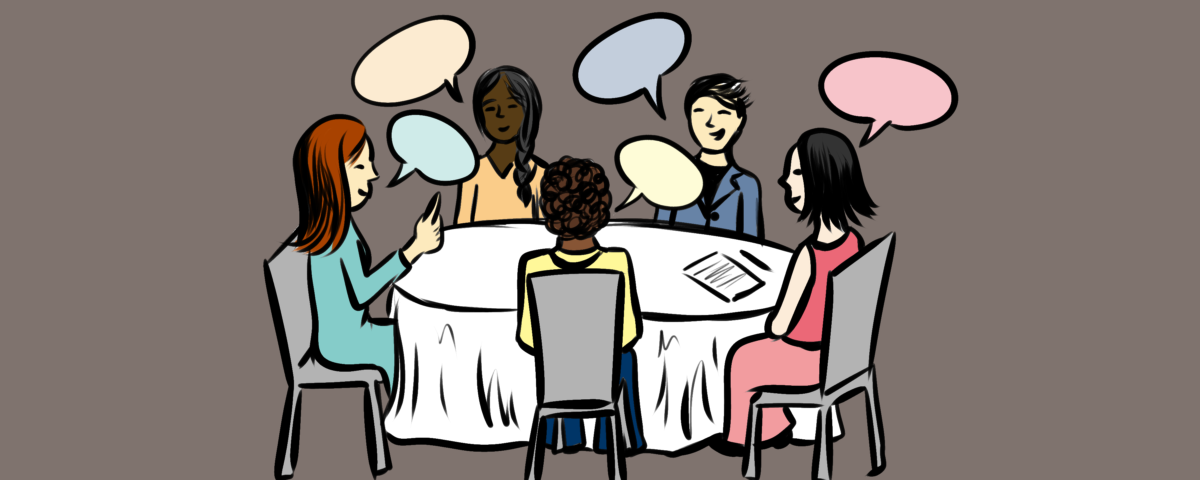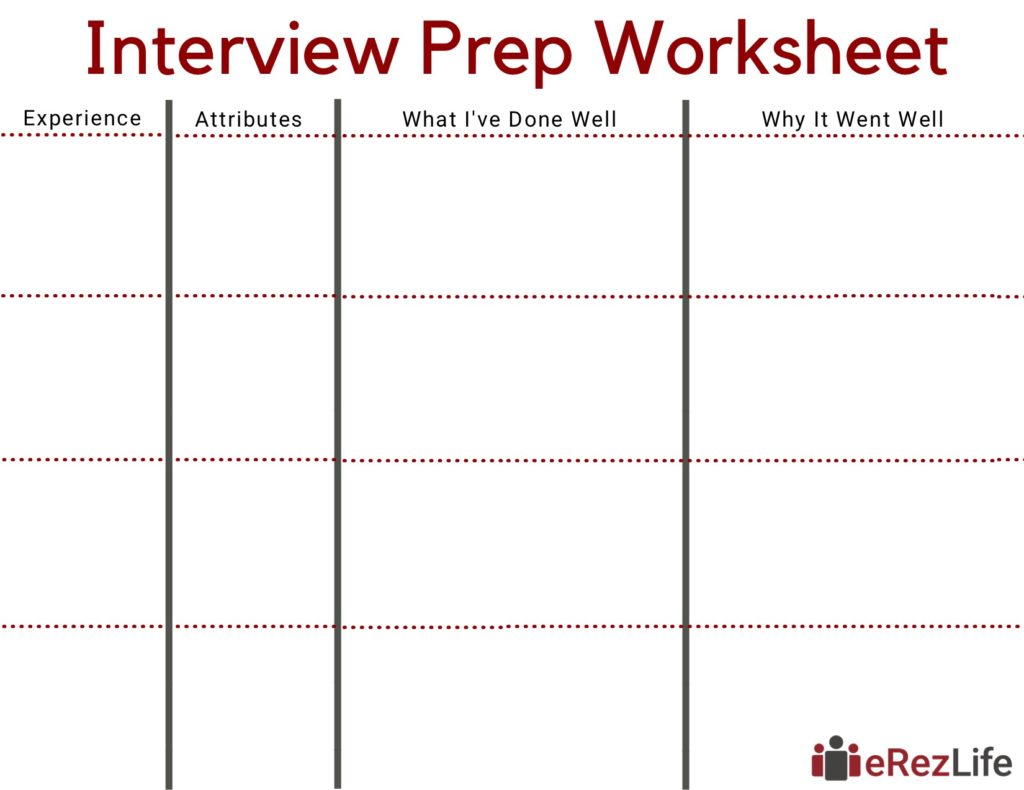
5 Things to Do Before Your Group Interview
Oh, hey! Welcome to the community.
You decided to apply for a position in Residence Life. You’re excited about the potential to help others, make a difference, and contribute to your housing bills. However, when you received notification that you’d been invited to a group interview process, your jaw dropped. What does that even mean?
Whether or not this is your first job interview, a group interview process is a different approach to interviewing. Typically, the method involves becoming part of a cohort or group, completing some group activities with this group, and a short formal interview. Regardless of what element of the job interview you’re nervous about, consider these steps when preparing for the group components of your RA interview:
Do Your Research:
It’s no different from a class assignment. Don’t wait until the last minute, and don’t expect to saunter in and nail it without preparation. Use the same approach you would when thinking about an assignment: start early, consult multiple sources, and think critically. As you review the job description and chat with people about the job, think about the skills and qualities that are important in the position and how the interviewers may be assessing those. Don’t just listen; write things down. You’ll want to review your research later.
Prepare Your Tool Kit:
Prepare examples for your formal interview, and consider how your stories can be incorporated into conversations with your group mates. Create and memorize a few questions that you can ask your group mates and leaders. It’s paramount that you’re able to show interest in the stories of others while sharing a moderated version of yourself. By studying the job description in advance, you’ll be able to maneuver the conversation to showcase your skill set in different ways that align with the desired qualities of the role.
Think Differently:
You’ve thought of examples, you’ve reviewed the job description, but can you answer a question you didn’t prepare for? Download our Interview Prep Worksheet, or make your own. To make your own, take a piece of paper and fold it in three lengthwise. Then, fold just the first column in half again lengthwise so that you are left with two smaller columns and two larger columns following. At the top of the first column, write “Experience” “Attributes.” Write “What I’ve done well” in the middle and on the other side, write “Why it went well.” Start brainstorming across the page. Think about something you’ve done well, and then complete the row based on that example. Next, think of an attribute you have that the selection committee is looking for, and work across the row to illustrate an example of when you showcased that attribute. You can start in any column you want and feel free to jump around. When you’ve finished the activity, you’ll have a list of skill-based examples that can be used for a variety of questions.

Pump Your Tires:
Sure, anyone can give you a pep talk. However, when your confidence comes from within, it will shine through in all aspects of the job interview. Listen to the praise and advice of others, and build your confidence around those things. Take time to honestly reflect about your anxieties and how you plan to overcome them. Remember that response to failure, problem-solving abilities, and resilience are often traits that are assessed, so it’s important to keep the morale high in these moments. If you make a mistake, how will you bounce back and not let one moment ruin your interview? Regardless of the outcome, if you showed your best version of yourself, you should be proud of your performance.
Plan Ahead:
Dress appropriately for the role and the process–nothing hurts your confidence like feeling physically uncomfortable or worrying that you’re showing skin that isn’t meant to be seen. Plan your outfit the day before, so you have ample time to test it out and still arrive at the interview on time. Test that your outfit works while standing, sitting in a chair, and sitting on the floor. Allow buffer time to account for the unknown. Maybe your pants rip when you bend over to tie your shoes, causing the need to change again. You never know what life may throw at you before the interview, so the more time you allow to account for those curveballs, the better. If you arrive late and flustered, you’ll forget all about those questions you prepared, and you’ll be more concerned about catching your breath.
Good Luck!
In any job interview, and especially in group interviews, genuineness shines through. The assessors will want to see your true self. It’s okay to admit that you’re nervous; it shows the evaluators that you care. If you don’t get the job, know that it wasn’t the right fit at this time, but it doesn’t mean that you shouldn’t try again. By preparing and maintaining your authenticity, you’ll put your best foot forward in a group interview process.
Thanks for being part of our community. We’re glad you’re here.
Sources:
https://theundercoverrecruiter.com/10-killer-interview-tactics-you-ought-know/
https://www.linkedin.com/pulse/how-smash-group-interview-james-caan-cbe/
http://www.ventureteambuilding.co.uk/activities-for-recruitment-assessment-days/
https://www.roberthalf.com/blog/job-interview-tips/how-to-prepare-for-a-job-interview-and-have-fun
Tags: staff selection
